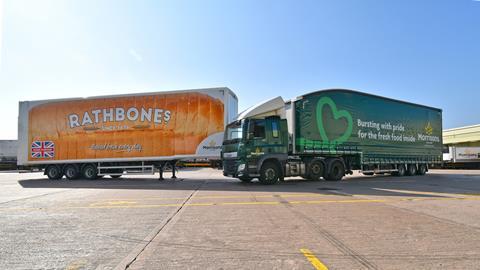Speaking at his first press conference in February, Morrisons’ new CEO Rami Baitiéh insisted the supermarket’s manufacturing sites – including its bakery – were its “strengths and competitive advantages”. Perhaps his confidence was misplaced.
Last week, The Grocer reported Morrisons was closing its Rathbones bakery, with almost 400 workers facing redundancy in the run-up to Christmas.
It followed months of speculation surrounding the sale of the 28,000 sq ft factory in Wakefield as Morrisons explored a number of options for the manufacturing facility. The Grocer understands Hovis was engaged in early-stage talks, but the two parties could not come to an agreement.
Morrisons’ failure to strike a deal with Hovis’ private equity owner Endless surprised one senior industry source. “It’s not that long ago they spent over £20m on the plant,” they say. “It was probably one of the better assets out there. If I was Endless, I would want the asset. How they can’t come to an agreement, I’m not sure.”
A second senior bakery industry insider agrees, adding: “It’s remarkable that a really well-equipped operation like Rathbones can’t find a buyer. It speaks volumes about the state of the industry.”
“Hovis is owned by private equity – they’ve gone on the record about wanting to make acquisitions. So, if they, on an acquisition spree, have turned it down, there’s either something being hidden there, or the state of the market is such that we need to take capacity out.”
‘Dire capital returns’
Shore Capital VC and head of consumer research Clive Black also thinks the plant bread sector “needs lesser capacity” for ”more sustainable economics to emerge”. While Rathbones closure was “a big blow to those involved”, he believes that the move could be a ”helpful step to improve what are generally quite dire capital returns”.
The Grocer’s second anonymous source explains that plant bread has “been through a really extreme situation recently with inflation, which pushed up value and… has taken everybody’s eye off volume”.
Despite keeping its value flat (+0.2%) at £2.0bn, volumes of plant bread are down by 2.4%, equivalent to 25.5 million fewer kilos sold through the tills [NIQ 52 w/e 7 September 2024]. Own label (–3.3%) is bearing the brunt of plant bread’s volume declines, having sold 18.7 million fewer kilos over the period – compared with 8.8 million fewer kilos sold by brands. Despite this, private-label loaves (worth £633.2k) account for less than one-third of the category’s value.
Fierce competition among retailers and brands has devalued the category, our source continues. “Oversupply drives prices down and forces such a competitive market that no one has any money to invest in innovation, and all they do all day long is argue among themselves about trying to stab each other.”
“The primary retailers will have their own label produced at a marginally costed price,” agrees our first insider. “The problem that Morrisons had was, because of their vertical integration, they never really understood the competitive landscape.”
‘Bog-standard white bread’
As the category leaders focus on keeping prices down, challengers are starting to shake up the sector. Take Jason’s Sourdough, whose value is up 138% to £36.3m, with volumes up 132.6% [NIQ 52 w/e 7 September 2024].
Jason’s declined to comment when approached by The Grocer, but our first source attributes its growth to “the consumer moving away from bog-standard white bread” as a result of negative headlines around ultra-processed foods.
“They believe a sourdough or bloomer is nutritionally different,” says the source, adding that because of this, shoppers are willing to pay more even though “sourdough is just a bit of a flavour” and not much better than standard sliced bread. “It does cost a little bit more to produce, but not a lot.”
Morrisons could have learnt from Jason’s canny positioning, the source argues. “With the kit they’ve got, they could’ve started putting bloomers through the oven and mixers and been more creative. The problem is they don’t have the time or the financing to do that. They’re running with such an issue in terms of their debt profile that they’ve got to make decisions fairly rapidly to sort themselves out.”
Last week Morrisons announced it had lowered group debts to £3.8bn, down by 40% from the £6.2bn bill it faced following the takeover by private equity firm Clayton Dubilier & Rice in 2021. Meanwhile, Rathbones’ most recently filed accounts detailed pre-tax losses of £3.7m in the year to 20 October 2023.
Even though Baitiéh had to swallow his pride, the decision to shutter Morrisons’ loss-making Rathbones bakery probably seemed like an easy win for the supermarket boss. For now, Morrisons is leaving the fancy bread-making to the challengers.




















No comments yet